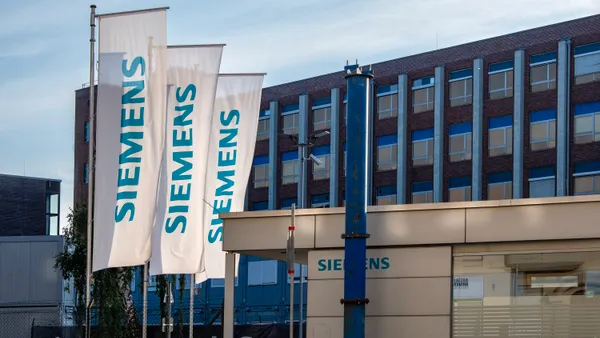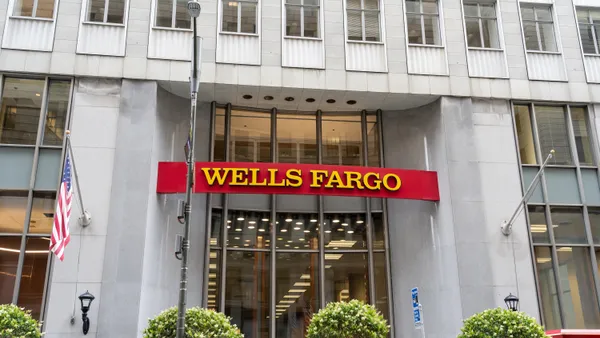Dive Brief:
- IBM announced revenue growth of 5% year-over-year in Q1 2018 — its second consecutive quarter of growth after more than 20 quarters of declining revenue. Cloud revenue was up 22% over the last 12 months, driven by as a Service offerings and an annual run rates up 20%, according to Jim Kavanaugh, SVP and CFO, in the company's earnings call.
- Storage hardware revenue declined in Q1, but strategic imperatives revenue — which includes analytics, cloud, mobile, security and social — comprised 47% of the company's total revenue over the last year, up 15% for the quarter, Kavanaugh said. Security and cloud led strategic imperatives revenue.
- Growth in the quarter was bolstered by continued client investment in IBM's blockchain platform and other "innovative technologies" segments, including enterprise cloud, AI and security, according to Ginni Rometty, IBM chairman, president and chief executive officer, in a company announcement. Many companies and organizations are adopting IBM's blockchain technology in droves as a way to track shipments and store data across the supply chain.
Dive Insight:
After years of lackluster earnings reports, beating expectations and growing revenues for a profit for the second year running is big news for Big Blue. Despite the disappointing hit, Kavanaugh expects the storage segment to get "back to where it needs to be" for Q2.
IBM's leadership in enterprise blockchain solutions is important for the company moving forward. As companies jump on the blockchain bandwagon, IBM is reaping the benefits and could be making a comeback after years of declining revenue.
While blockchain began as an experiment in digital currency and a way to decentralize financial transactions, companies have realized the technology's applications reach far beyond cryptocurrency.
"We ... continue to make progress in emerging areas like blockchain. We've grown to over 50 active blockchain networks since the release of our IBM Blockchain Platform in the third quarter last year," Kavanaugh said.
Samsung is just one of the latest major companies turning to blockchain to help manage its supply chain. It's considering using blockchain to track global shipments of its electronics. In an interview with Bloomberg, Samsung's blockchain chief said the technology could cut costs up to 20%.
In addition to cost savings, blockchain promises to help supply chains with visibility, particularly beyond Tier 1 suppliers. Starbucks launched a pilot to create transparency from "bean to cup," using blockchain to collect data on coffee bean farmers in its supply chain. Unilever is using the technology for a similar project to monitor tea farmers that supply to its brands.
The technology is still in its nascent stage in most industries. In 2017, Gartner reported blockchain as past the "peak of inflated expectations," heading through the "trough of disillusionment" before hitting the "slope of enlightenment."
The trough could signal bad news for Big Blue's revenue growth. But if the numerous blockchain pilot projects prove successful in adding traceability and saving costs, blockchain could thrive.














